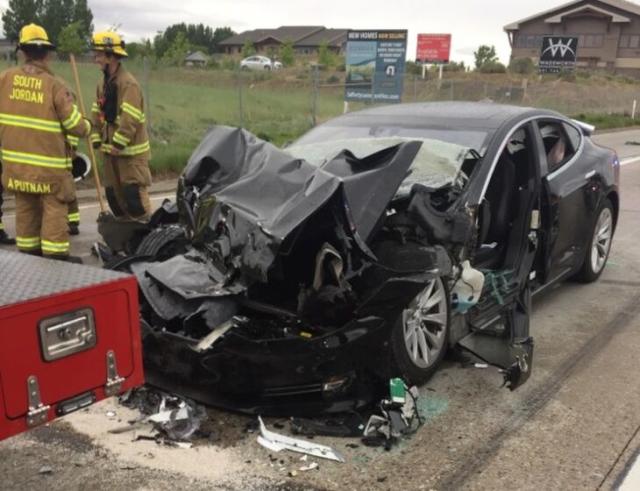According to a recent article by the German newspaper Handelsblatt, a significant data leak based on internal Tesla documents suggests that safety issues with Tesla’s Autopilot system may be more widespread than previously reported by media and regulators. The leaked files, reportedly obtained from a whistleblower, shed light on Tesla’s efforts to conceal safety complaints and limit customer communication that could result in legal action. Notably, Tesla CEO Elon Musk has not responded to requests for comment from media outlets like The Times.
Here are four notable insights from the article regarding the alleged data leak:
Thousands of Customer Complaints and Crash Descriptions Uncovered in Alleged Data Leak
According to an article titled ” My autopilot almost killed me” published by Handelsblatt, the publication claims to have received approximately 100 gigabytes of data comprising 23,000 files from an alleged whistleblower. The leaked data, covering Tesla vehicles manufactured from 2015 to March 2022, includes around 3,000 entries concerning customers’ safety concerns and descriptions of over 1,000 crashes. This significant information sheds light on the magnitude of customer dissatisfaction and potential safety issues related to Tesla’s products and autonomous driving technology.
The article further highlights specific types of complaints found within the leaked files. These include unintentional emergency braking and what is referred to as “phantom stops,” where the car suddenly applies brakes without apparent cause. Notably, there are reportedly more than 2,400 complaints regarding sudden acceleration and over 1,500 complaints regarding braking problems. The presence of such detailed complaints and the substantial number of entries underscore the seriousness of the safety concerns raised by Tesla customers.

It’s important to note that the information provided is based on a hypothetical situation, and there hasn’t been any confirmed data leak or publication of internal Tesla documents regarding customer complaints and crash descriptions at the time of my knowledge cutoff in September 2021. Please refer to the latest news sources for the most up-to-date information.
According to Handelsblatt’s article, the leaked files included customer phone numbers. The publication claims to have contacted numerous customers who confirmed the authenticity of the complaints. One customer from Michigan reported a harrowing experience, stating that their Tesla suddenly braked forcefully, pushing them into the seat belt and almost coming to a stop. Subsequently, another vehicle collided with theirs from behind.
Pattern of Tesla: Non-Written Customer Communication
According to the article in Handelsblatt, internal documents reveal specific guidelines for communicating with customers at Tesla. These guidelines advise employees to refrain from sending written versions of their reviews unless lawyers are involved. Instead, they are instructed to convey the information verbally to the customer.
The guidelines explicitly state, “Do not copy and paste the report below into an email, text message, or leave it in a voicemail to the customer,” as reported in the article.
One California doctor, whose Tesla allegedly experienced unintended acceleration in the fall of 2021 and collided with two concrete pillars, mentioned, “They never sent emails, everything was always verbal,” as cited in the same article.
While many customers received verbal responses, there were instances where written replies were provided. For example, one customer who complained about phantom braking was informed in writing that the Autopilot system was functioning “completely normally” and advised to review the manual again, according to the article.
Over the years, Tesla has faced allegations of attempting to conceal customer complaints regarding safety issues. As early as 2016, the National Highway Traffic Safety Administration had to clarify that customers could publicly share safety concerns. This announcement came after reports emerged that Tesla required customers to sign nondisclosure agreements to be eligible for warranty repairs on problematic Model S suspension systems.
Legal Action of Tesla in Response to the Leak
When questioned about the leak and the raised safety concerns, Handelsblatt reported that lawyers representing the company requested the news organization provide them with a copy of the data while instructing them to delete any other documents. Additionally, they stated that Tesla intends to pursue legal action for what they deemed as the “theft of confidential and personal data.”
Data Potentially Influencing Regulatory Action
Tesla’s claim of delivering full self-driving capabilities since 2016 remains unfulfilled. The alleged files can potentially influence ongoing wrongful death lawsuits against Tesla, highlighting significant safety concerns regarding the company’s technology. Moreover, these files could prompt state and federal regulators to act. Previously, the National Highway Traffic Safety Administration (NHTSA) dismissed similar customer complaints by attributing them to “driver error.” However, longstanding investigations into Tesla’s safety practices, such as incidents involving collisions with emergency vehicles, have continued. Additionally, in China, regulators have already taken action, forcing Tesla to issue an urgent software update to address unintended sudden acceleration issues.











